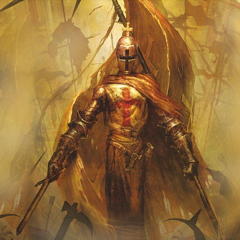I wrote briefly about James before as a possible way to escape Clown World for those less burdened by many children perhaps.
I have not had enough time to yet finish his second book, People of the Sea, but am a good 2/3 of the way through it and am genuinely fascinated by the man. Had I known of him earlier, while I still lived in England, I would probably have tried to meet him and have a conversation. Something now impossible as he left this Earth on 14 December 2021.
It is hard to know how I would have reacted to him in person. On the one hand I get the sense he was a man that had absolutely no doubts about his way of doing things, regardless of what anyone else thought, which I relate to very well, and he also seems to have been comfortable with the ocean, something that I, though not a sailor, always have been too. For me, mostly as a form of relaxing solitude. These are the sides of him I relate to. But on the other hand there are sides of him I am curious about. Not so much his rather hedonistic aspect of having multiple female lovers live and work together, though I am sure that fascinates many men.
The reality of that aspect is not one that fascinates me very much. I have had many lovers and at times some of these women knew of each other, but ultimately I am an intense person in a way I suspect is very different from how James was.
The ever-shifting dynamics of female emotions, and multiple females at that, tend to affect me perhaps more than they should, as my ability to sense the mood of others is elevated enough it invariably has some influence on me. Not in the sense that it diverts me from my chosen path, but rather in the sense that it acts as a kind of unpleasant background noise when it is in dissonance with my own rather calm and ever-forward looking natural state of being.
Two, three, or five women at a time in a confined space like a sailing catamaran could quickly devolve into a floating hell from which the only escape would be to tie the main anchor to your neck while seeking the blissful silence of death in the depths of the Ocean.
Probably too my own intensity in this regard would be at fault. I could never really be with a woman half-heartedly, even when the encounters were brief and temporary. After all, the whole point for me was to experience that person as deeply as I could in the moment, ephemeral or even inconsequential as it might be in the long term. And that tends to cause a reaction in the women too, and in the other women who inevitably end up in some kind of competition for such attention.
But in some way I sense this ability of James to juggle multiple women at once in a way that clearly was not superficial —at least from what I can gather from a book— since after all, he had children with at least two of them and long relationships with several, is tied —or at least related to— his ability to immerse himself also in customs of pacific islanders, and what he refers to as “Arts and Craft” types that helped him build various ships over the years.
Once again, the thought of spending weeks, months and years with random strangers of rather eccentric types and backgrounds —which I uncharitably think of as a kind of kumbaya unwashed hippies— sends a shiver up my spine.
None of this is a judgement on James Wharram, but rather merely a springboard on which I ponder my own character and try to compare it, to see what I might learn, if anything. For this reason I would genuinely have loved to spend some hours talking with him and getting a sense of him directly.
Whatever one might think of his character, there is absolutely no denying that he was a unique and uniquely talented individual. With a knack for meeting, attracting and becoming partnered with similarly uniquely talented women too.
I wonder at his ability to commune with groups of people from very different walks of life, because I too have this quality, but it seems to me, perhaps wrongly, he had a better ability to remain embroiled with them for longer periods and in more confined spaces. Something I doubt I could do for very extended periods of time.
It makes me wonder, at what abilities I may need to learn and gain proficiencies in, if I am, indeed, ultimately, to succeed at creating the greater Kurganate I have set out to do.
But then I also am pre-selecting the people I am interested in attracting because I have already determined they need to be 1958 Sedevacantists, preferably with a good understanding of the first Crusade and the Siege of Malta for their inspiration regarding being a good Catholic, for this to work.
There is also an undercurrent of the boomer years and zeitgeist that existed in the 1960s and 1970s and generic optimism of the 1980s that possibly made his unusual life both easier in certain ways and also harder in others, but that is pretty much as most men have it anyway.
What shines through most for me is the absence of the levels of bureaucracy, nickel and diming, permits and regulations, that he could mostly operate under.
Another aspect is the extreme bravery that perhaps is best described as the foolishness of youth that later matures into courage that was exhibited by all his lifelong female companions. As well as the fact that all of them, James included, absolutely give me the certain impression of essentially being good, open, friendly and reliable people.
Human beings are all nasty, brutish, weak, selfish beasts, even the best of us, but between our flaws and weaknesses and fears and egos, there are genuine moments of light and joy and love and bravery and goodness that simply reveal also the spark of the divine in us. And I have the absolute sense that James Wharram and “his women” all would have been people I could see that aspect of humanity in them that makes us redeemable.
I see and recognise his quasi-pagan ways in my own attitude for most of my life before my conversion experience to Crusader style pre-Vatican II Catholicism, a conversion I would have ridiculed as impossible even one day before the 3rd of March 2013.
And I wonder how I might have seen his views in say 2020 when I was already a baptised Catholic and he was still alive and I imagine from his writing at least, in possession of all his faculties.
Again, not as a judgment on him, but rather a perspective on me.
It makes me wonder… what if I had managed to get my yacht in my early 20s and started sailing and lived a life close to what he did?
And I am reminded of a time when I was 19 I think, and went for a week to Durban to do a sailing course. I slept on the boat to save money, which was an option, enjoyed the skipper, who was a grizzled old man that took the usual “liking” to me that men who are men in their own right often took with me when they were older, which is to say, be impressed by my ability (I was the only one who did not take motion sickness medication who managed to keep his lunch in his stomach, and that only by watching what the skipper did, which was to let the waves move him instead of fight them) and at the same time get frustrated by my overreaching. In the exercise on rescuing a man fallen overboard, I got the shortest time… but I did so by arriving at the lifesaver that had been cast overboard at such speed that even when the sail was dropped and the boat came right up to the lifesaver so it could be plucked out by hand without even needing the pole to hook it, the skipper blew up at me.
Doing that manoeuvre that way in a storm was likely to crush the man overboard’s skull if the waves and the boat’s speed and sudden stop did not align perfectly. But we weren’t in a storm. And it was a lifesaver doughnut, not a living person. And I did the best time. But I kept quiet. He was the skipper and he was trying to educate me. And I had had various injuries and my nose broken by various karate instructors, on whom I inspired similar sentiments. As the Japanese say:
“The nail that sticks out gets hammered.”
I enjoyed the week of sailing and I had taken that course because I wanted to learn to skipper in preparation for eventually finding a way to get a yacht and be free of most of the rest of the world.
But there were two events I still recall from that week. One was a film I went to see one evening, about the dictatorship in Chile, with Jeremy Irons and a beautiful young woman who is raped then killed by some random soldier. It was, I recognise now, propaganda designed to make Pinochet “the bad guy” when in effect he probably saved millions of Chileans from utter misery and death.
The other was an encounter at a local pub I went to on another evening, that being in a port was frequented by sailors. I struck up a conversation with a Frenchman, and he told me about his boat and how it didn’t take much money to do what I wanted to do. He had bought a boat in pretty bad “used” condition and worked on it for a year or so to get it ship shape. I don’t recall the exact type of boat, it wasn’t very big, but had two masts, he had travelled the world with it, and a woman, for eight years. Then, a couple of months earlier, the woman had enough, and left him. Somewhere in India I think, to fly back home to France and I suppose her family. He was still clearly distraught. As he drank another beer, to my then teetotaller juice or water, or whatever it was, he gradually became more melancholic and sad.
I still think about that Frenchman on rare occasions, and hope he found peace somewhere with someone.
But it also made me wonder. What would a life aboard be like? Yes I wanted freedom, from rules, people and humans in general, and considering I grew up mostly wild in rural areas around the world, it might give you an indication of just how misanthropic I am, and how much I enjoy the “authority” of people dumber, slower, and less accomplished as human beings in every way than I am, which basically means pretty much all governments on our planet currently, and absolutely and totally with respect to the pedovores that run them.
The life of endless adventure is one some men aspire to and can live. I know I have that in me and my own life is pretty much testament to it. But it is not that I was alone so much because I necessarily enjoyed it, as my mother had once assumed at around that time (but then it was obvious to me from age 2 onward that woman had and has never understood the remotest part of me or how I function). I spent a lot of time alone because the alternative was to spend it surrounded by idiots.
I know that sounds unkind, but it really was the case. Imagine, if you will, that your options in life was to retreat in a life mostly of solitude, or be perennially surrounded by mongoloids. As well-meaning and harmless as they might be, try to imagine how it would be to have them constantly around doing mongoloid things and talking mongoloid talks and discussing things on their mongoloid level.
And yes, again, I know how arrogant it sounds to probably most of you reading, but with an IQ that averaged at 155, the distance between me and the nominally average person of 100 IQ is greater than the one of the average person and a 65 IQ mentally handicapped person by a whole standard deviation.
I didn’t know or care about IQ then, but the distance in mental ability, interests, and so on was simply unavoidable. Part of the idea of sailing the seven seas was that in doing so I might meet and learn from cool people in far away lands and maybe even end up with that hot girl that would look really awesome in a swimming costume in some Caribbean island setting.
But the Frenchman made me think.
The lure of adventure for a man is natural, but for a woman… eventually their purpose in nature is to make children, and even if I found one willing and able to give birth at sea and homeschool them on the boat as we travelled the world… was that the kind of father I saw myself as?
It’s not that it would be a bad childhood for my children, or even unhappy for the woman; but…
what… ultimately… would be the point of such a life? How many ports and cultures and miles and miles and miles of ocean can you sail before it all starts to seem aimless?
I used to play Traveller a lot as a teenager, and even now, the idea of having a spaceship you can use to go explore weird new worlds and trade with alien species is something I would immediately say yes to. And I know every one of my children except possibly my eldest would too. And my wife. She probably would come along because the kids would convince her, but she likely would have a nervous breakdown.
The idea of a yacht was a kind of analogy for that.
Sail away. Meet new people, possibly frolic with hot exotic women, even if they didn’t have blue skin and came from another planet. That was the general idea. But then what?
I have in any case travelled a lot and met many different people and cultures; and spent enough time with many different women too. And yet, my perspective on this from when I was age 19 was still correct. I am glad I did it as otherwise I would have remained unsatisfied in the wondering of it, but my life was never about the travelling per se. That was just incidental. I went where my curious heart led me. That’s all.
So, the life of James Wharram seems to me to be almost a window into what one of my possible lives could have been. It is interesting to look through that window and think about it. But my sense of it, which I am sure is only because I am on this side of the window, is that such a life would have been just that much lonelier. Perhaps not by much, but by enough to probably be a bit more than I would have liked.
And I wonder what James would tell me if he were still here, sitting across from me with whatever his drink of choice might have been, be it an English tea or something else.
I suspect he might tell me that he was one of the most free and least lonely men that ever lived, having the love and companionship of multiple women simultaneously and adventure rarely had by anyone today alive. And I would keep quiet and listen.
And while imagining and pondering, I nevertheless do not envy nor begrudge the man anything. Because I think it is a trait of at least some men, of which I am one, that they do not experience such emotions. They are emotions that are the children of ambitions and lives unfulfilled and failures to launch. I have failed many times at many things. And I have not yet achieved but a fraction of what I want to, and honestly, unless dementia takes me, it is utterly impossible I ever will achieve even a quarter of what I would like to do, given infinite money and other resources. But the point is I have never stood still and stagnated. Sometimes I struggle in quicksand for a while, but eventually I drag myself out of it and carry on at my usual speed again. Besides, which adventuring hero of pulp fiction does not have a regular close call with quicksand?
So I read and think about James Wharram and his life and am glad for him and his having written it down. And of course for Hanneke Boon and Ruth and the other women and friends of his that made his story possible.
Wherever you may be James, I hope you have tropical waters and fair winds.










My Position on the Nazis
Given the “scary cover” of Nazi Moon, which is the collection of the first three books of rhe Overlords of Mars Series (as well as the first iteration of the cover for book 1 of that series – Overlords of Mars : Inception) and my author’s notes in the first two book being clearly anti-nazi, while the author’s notes in the third book might be seen (by people who can’t read for comprehension) as being pro-nazi, I figured it was time to clarify my position with regards to “the Nazis” and Hitler himself.
I think to a great extent, Vox Day already covered a lot of the ground on the why of my own views in his own clarification post here.
Being as unlike Hitler I actually am a devout Catholic (which also means I am a 1958 Sedevacantist, as these are the only actual Catholics left), Hitler’s and the Nazis in general, Pagan New Religion that they wanted to be based on racial lines and use to completely eradicate Catholicism (Christianity is Catholicism and vice-versa, all else is just heretic Churchianity, as anyone capable of reading and interested enough in looking at actual Church History and the Bible can conclude if they are objective and not already brainwashed a priori) is obviously not anything I agree with.
That is enough to make me clearly anti-Nazi ideologically.
Which does not mean I will also pretend certain realities about that period of history will be ignored or swept under the carpet just because they happen to align with “Nazism” in a more general sense.
For example, I absolutely do NOT believe 6 million Jews were gassed to death in concentration camps. But then, no one else does either, including holocaust historians in Israel.
Was there a persecution of Jews? Sure. And if you want to call it a holocaust, knock yourself out. But if you want me to feel especially bad specifically for the Jews, you may not want to be holding your breath. At least not until after everyone acknowledges publicly that “the Jews” —in the general sense just as “the Nazis” is used— have been responsible for far more human misery and death than any other ethnic tribe or religion on the face of the Earth since the beginning of recorded history.
Marxism and communism are both Jewish ideologies, the invention of the contraceptive pill was done by a Jew (1) as was the general attitude towards abortion, promoted by Sanger and today abortion being claimed by prominent Hollywood Jews as part of their religion.
The Bolsheviks (Jews) killed more nominally Christian Europeans than did the Second World War.
Jews caused holocausts of Palestinians (doing it today) and Lebanese with horrific crimes that simply go ignored by the mainstream narrative and their involvement in pernicious practices of usury, financial deceit and the literally absurd invention of fiat money and how it is operated by private enterprise run by powerful Jewish families, is again, a topic that is as forbidden to speak about as it is of whether gas chambers to gas people ever did or even could exist in Auschwitz and other concentration camps.
In short, the attitude that Jews are the most victims that were ever victimised as a people and deserving of some special treatment because of it is not only something that I don’t subscribe to in any way and never will, it is also an outright lie that inverts the truth that as a people, Jews, their ideologies and general practices in their host nations have undoubtedly caused more death and misery than any other people.
In fact, the intentional murder by forced marches, starvation, exposure and outright murder of German civilians after the second world war os multiples of times higher than the total number of Jews killed in it. The Morgenthau plan, which was “officially” abandoned, got actually put into practice by de facto behaviour of the allied forces against the defeated Germans. It is estimated something like ten million Germans were murdered this way, while the best estimates of the total number of murdered Jews, which ranges from 300,000 to 500,000. Certainly a tragedy, and we are happy to call it a holocaust if that is what the laws force us to do, but let us also then call out the multiple holocausts the Jews caused against the Germans, the Ukrainians and the Russians.
And let us also look with more care into the financial reasons that started, financed and caused the first and second world wars. Work that Antony Sutton has already done in three volumes, none of which have been found in error.
Just like none of the work of David Irving , who was a renowned historian for many years, before he looked into the Jewish holocaust and started to report back on his findings. After that Mr. Irving was publicly made a spectacle of and his work intentionally destroyed by the UK police. His vilification was total and people like me who had no real idea or interest in the details at the time just saw his picture plastered on the front page of various papers for being some callous, evil, neo-nazi denier of the holocaust. And as most did not have today’s awareness of the fact that almost all the mass media is also controlled by Jewish interests, and in any case is filled with the worst sort of liars from too to bottom, everyone just assumed Mr. Irving was indeed just some crazy vicious racist/holocaust-denier.
But Mr. Irving did not deny the Jewish Holocaust. He simply demonstrated the real extent of it in ways that were irrefutable even if not especially new. In fact, the entire Jewish Holocaust scenario began to appear in the 1960s. Before then, no one even discussed it. Including the people who had physically seen and even liberated some of the concentration camps. There was no outcry about gas chambers masquerading as showers in the immediate aftermath of the end of WWII.
Aside all that, there is another aspect of the Nazis that has to be acknowledged as being objectively superior to everyone else at the time: their technology.
The Nazis rediscovered the principles of antigravity and invented stealth technology as well as various devices to power their submarines far in advance of anything the allied had, and using different principles of physics,
They also invented the first jet engines and various other “wonder weapons” such as, for example, the foo fighters, some kind of smallish floating ball or disc that essentially acted as an advanced predatory arial mines against incoming enemy aircraft.
They had various ideas and concepts, some repugnant in character, others neutral, that in any event are absolutely noteworthy. As is Hitler’s implementation of various financial methodologies, and removal of various corrupt Jewish officials who had inserted themselves into the government.
In short, no, I do not subscribe to Nazi ideology, but I don’t subscribe to American or Israeli ideology either.
1. From wikipedia:
Pincus remained interested in mammalian reproduction systems and began to research infertility.[6] In 1951, Margaret Sanger met Pincus at a dinner hosted by Abraham Stone, the director of the Margaret Sanger Research Bureau and medical director and vice president of the Planned Parenthood Federation of America (PPFA), and procured a small grant from the PPFA for Pincus to begin hormonal contraceptive research. Pincus, along with Min Chueh Chang, confirmed earlier research that progesterone would act as an inhibitor to ovulation.
In 1952, Sanger told her friend Katharine McCormick about Pincus and Chang’s research. Frustrated by PPFA’s meager interest and support, McCormick and Sanger met with Pincus in 1953 to dramatically expand the scope of the research with a 50-fold increase in funding from McCormick. Pincus was interested by Sanger’s work with impoverished women with histories of many pregnancies. Sanger indirectly influenced him to create a successful contraceptive to prevent unwanted pregnancies.[6]
No related posts.
By G | 6 January 2025 | Posted in Social Commentary